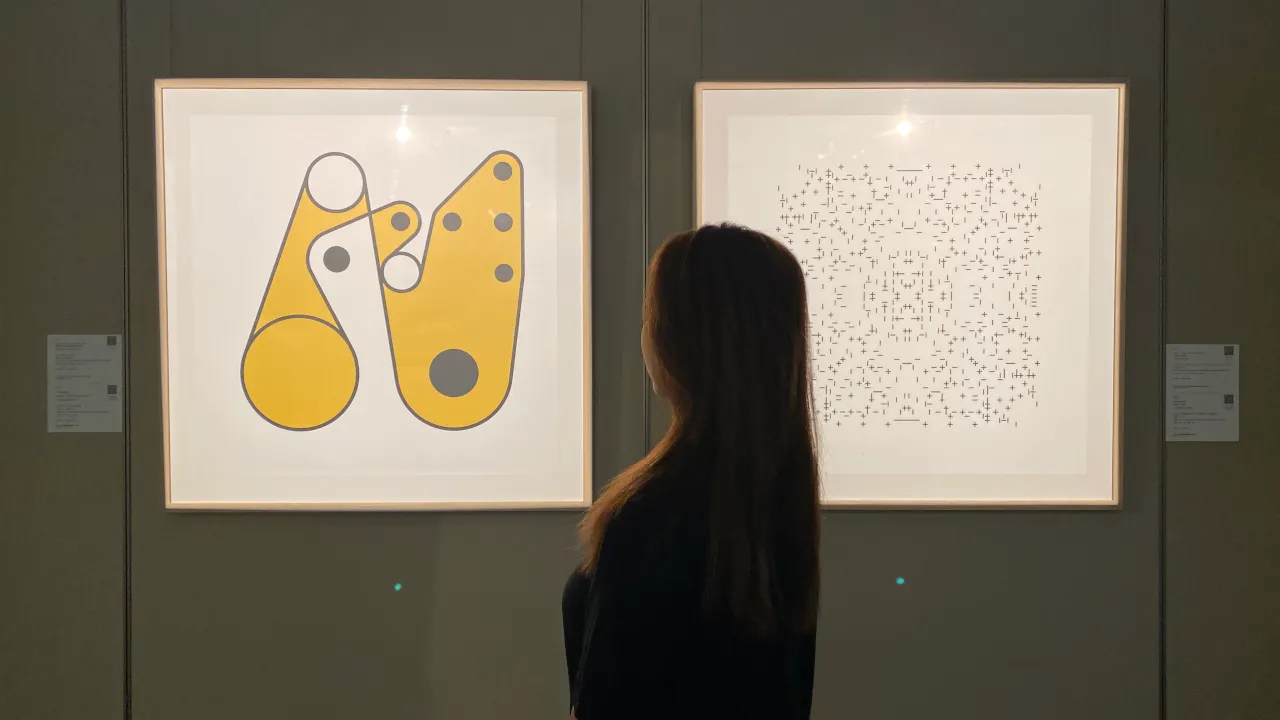Ringers #879, a generative piece of blockchain artwork by Dmitri Cherniak that's commonly known as “The Goose” among NFT enthusiasts, sold at a Sotheby’s auction today for just over $6.2 million including auction house fees.
The piece has quite a history. In 2021, it was purchased by now-defunct cryptocurrency hedge fund Three Arrows Capital for a whopping $5.66 million worth of ETH. “The Goose” has since been connected to Three Arrows’ Starry Night Capital fund, which sought to assemble “the world’s finest collection of NFTs.”
The collection was short-lived, however: after Three Arrows collapsed under the weight of billions of dollars of debt last summer, its liquidators announced they planned to sell Starry Night artworks off to cover the firm’s outstanding debts.
In April, Sotheby’s announced that it would facilitate a sale, curating pieces owned by Three Arrows into a new collection titled “Grails.” While the Sotheby’s website made does not specifically dig into the rocky context that facilitated the collection’s sale, the logo devised for Grails—a crown made of three arrows—cheekily alludes to that history.
A Sotheby's representative told Decrypt that the sale does not include pieces included in a trove of NFT artwork that was controlled by Vincent Van Dough, the pseudonymous NFT collector that partnered with Three Arrows Capital founders Su Zhu and Kyle Davies to found Starry Night Capital.
The auction house anticipated that “The Goose” would sell for between $2 million and $3 million today, an acknowledgment of the degree to which the NFT market has cooled since the frenzy of 2021 that still, nonetheless, forecasted ample market interest in ultra-expensive digital art.
Ultimately, the piece was sold with a hammer price of $5.4 million, but ultimately a final price of $6,215,100 including all fees. That more than doubles the high end of the estimate and beats the 2021 sale price with all fees included. Notable pseudonymous NFT art collector Punk6529 purchased the piece through their 6529 NFT Fund, Sotheby's said.
“The Goose” is particularly revered in the generative art community, due to the fact that it so effectively displays the combination of chance and skill involved in creating art from randomized computer code. Works like “The Goose,” which hail from generative blockchain art collective Art Blocks, are only created the moment they are minted as NFTs.
An artist’s code can set parameters for what the work may look like, but the exact output is always randomized. In the case of Cherniak’s piece, the confluence of shapes and colors in his 879th Ringers piece turned out to look quite a lot like a particular breed of waterfowl.
In the run-up to Thursday’s hotly anticipated sale, numerous artists, including Beeple, have shared artworks riffing on “The Goose” and its place in NFT and generative art discourse.
Another notable sale in today’s Grails auction was Autoglyph #218 from Larva Labs, which sold for $330,000, as well as Fidenza #479 by Tyler Hobbs for $622,300 and Fidenza #216 for $609,600. Chromie Squiggle #1780, created by Art Blocks founder Erick Calderon, sold for $635,000, more than tripling the the high estimate.
Editor's note: This story was updated after publication to include the name of the buyer, as well as another notable NFT art sale. It was also updated to clarify the provenance of the artwork and how Sotheby's framed the Grails auctions.
Daily Debrief Newsletter
Start every day with the top news stories right now, plus original features, a podcast, videos and more.

